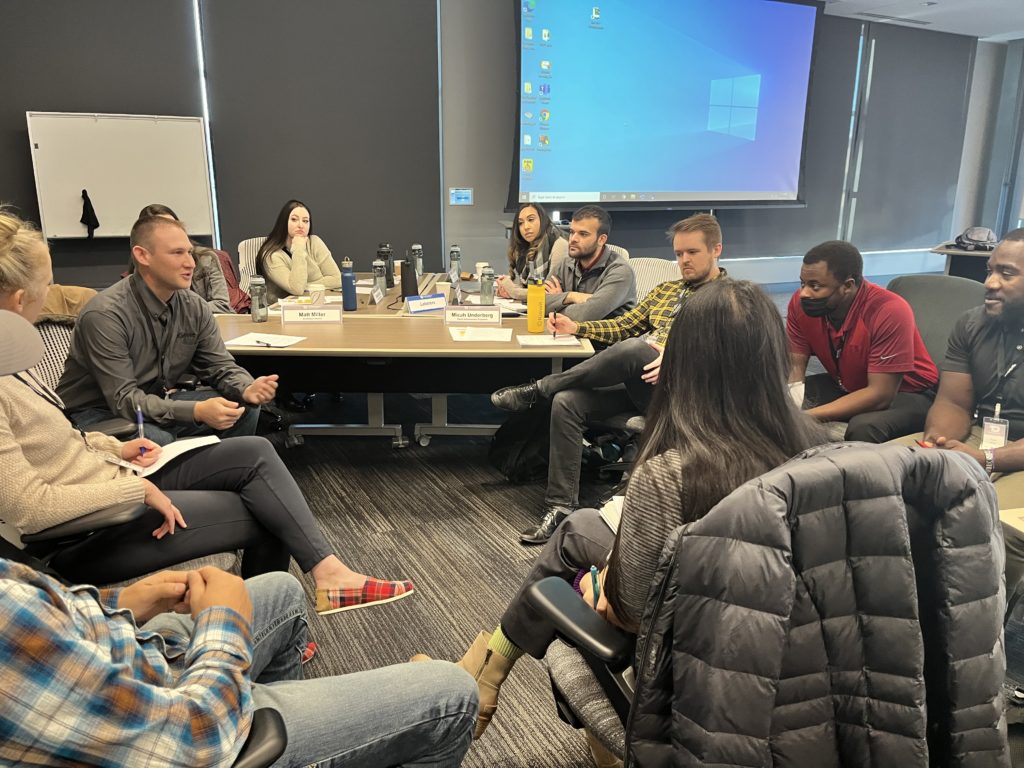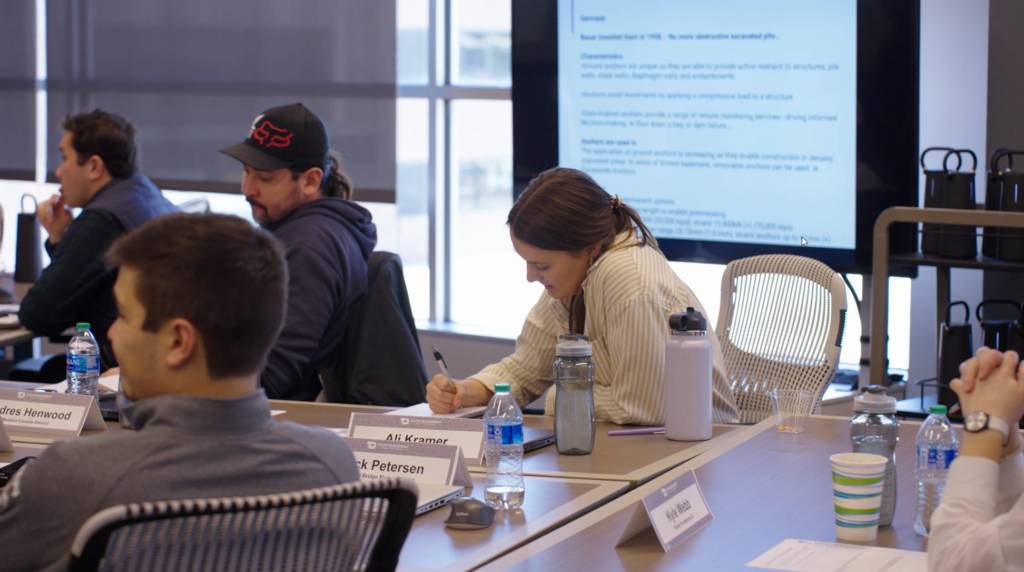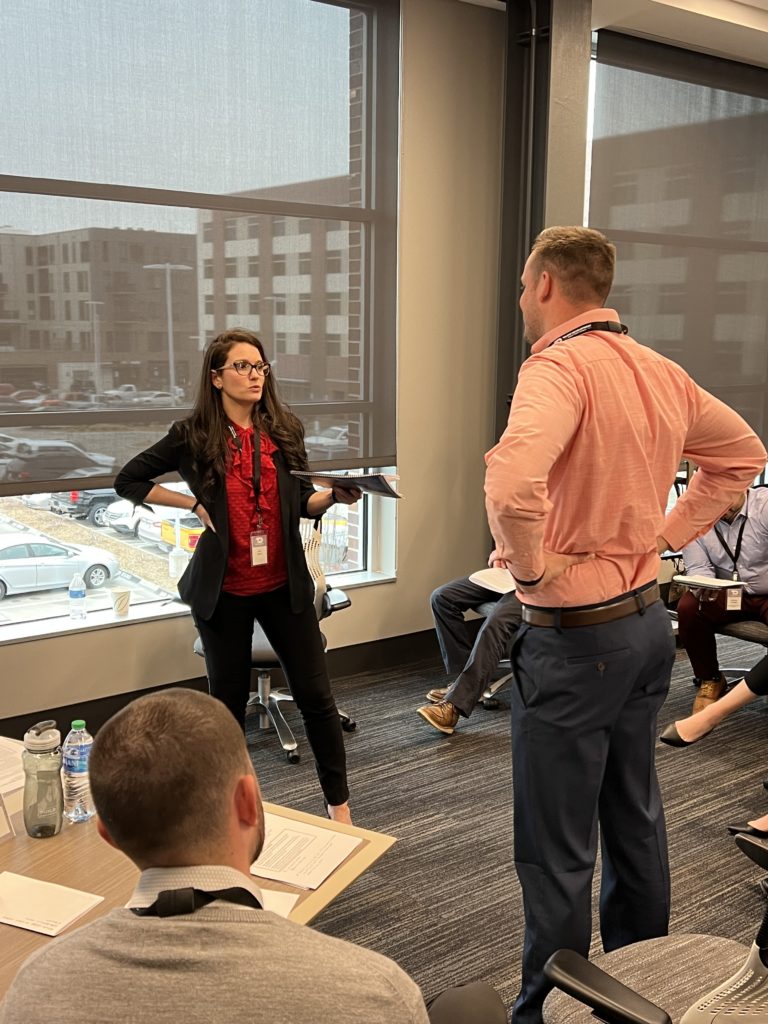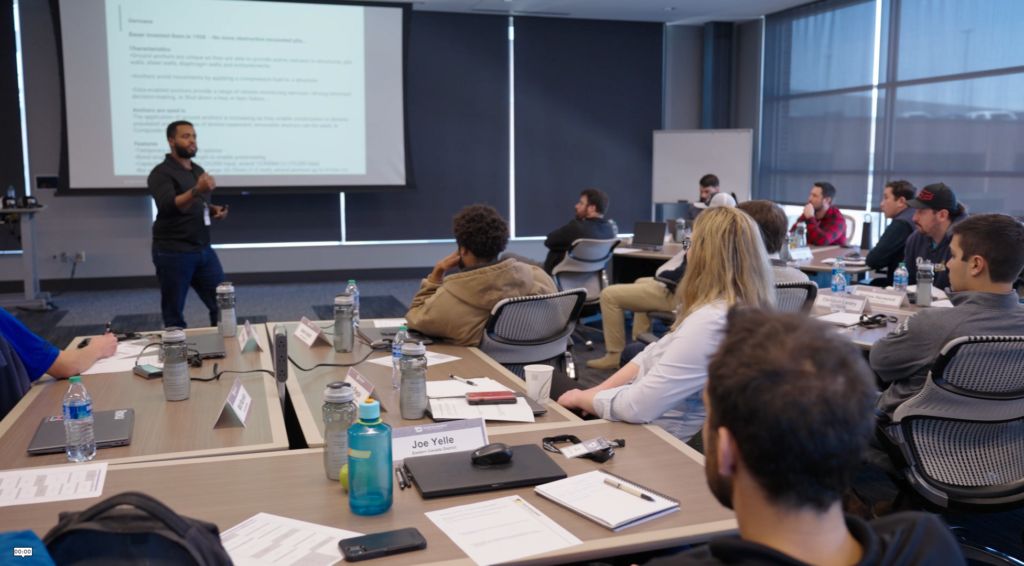Featuring a flipped approach to classroom learning, Kiewit’s NextGen hybrid training model places a priority on building relationships and management skills by applying them to real-world situations. The new model is transforming how learners gain career-building knowledge in technical, specialty, business and craft schools.
Necessity, it’s said, is the mother of invention.
When COVID-19 struck, Kiewit’s training programs had to make a big pivot. Traditionally held in face-to-face classroom settings, classes went virtual. Management training at Kiewit University in Omaha, Nebraska, went online. Craft lab classes at the training center in Aurora, Colorado, shifted to project sites.
What began as a way to keep Kiewit learners on track during the pandemic has also played a part in transforming how Kiewit trains employees and prepares them to lead the company, and the construction and engineering industry, possibly for decades to come.
In 2020, Kiewit’s Talent Development team saw an opportunity: to assess and re-tool how training was delivered and what it covered.
A changing landscape
Class content has always been evaluated regularly, with large-scale changes occurring about every decade, said Kiewit Senior Development Design Manager Katie Uhlenhake.
While it was a time of global uncertainty, it was also the perfect moment to take a closer look at several factors that have brought change to Kiewit and how the company is viewed both internally and to the outside world.
“Over 60% of our work this past year has been integrated delivery projects, including design-build and engineer-procure-construct contracts,” Uhlenhake said. “From the last time the schools went through a full redevelopment, the makeup of our workforce has changed immensely. And the company is participating in joint ventures significantly more often.”
What’s more, she said, changing demographics are bringing in learners with different expectations about how to learn.
“Today’s future managers expect to be engaged at a deeper level in their learning because that’s the K-16 experience today.”
Evidence-based methodologies
After a career in human performance, instructional design and adult education, Uhlenhake joined Director of Professional Development Richard Akers at Kiewit in early 2021 to develop a new training model.
Under the leadership of HR Director for Talent Development Rae Magistro, the model has ushered in a new mentality about how to use science to achieve the best outcomes.
“This is about applying evidence-based methodologies,” Magistro said, “to make sure that we’re delivering the content in a way that leads to better retention and behavior change.”
Management schools now start with a virtual kick-off to introduce key topics and provide e-learning assignments to be completed before pairing learners for peer learning exercises.
Learners then gather in groups, called learning crews, and are given case studies to resolve and present. Next, they’re brought to Omaha for a live training session, to build off their earlier e-learnings and case studies. Finally, they’re tasked with creating action plans to bring what they’ve learned back to their offices and job sites.
The facilitator’s position has been revamped, too. Now the leader plays different roles, asking the learner about what they’re doing at the training session, their critical thinking process, and what factors into the decisions they’re making in a certain scenario.
“People actually are put into a situation that would be very similar to what they would experience in real life,” said Tyler Nordquist, president, Kiewit Industrial Group, and chair of the operations management school.
“The class is set up more as experience-centric learning,” he said. “I think it will be easier for someone, when they encounter a situation in a job, to pull that memory or that feeling back from the experience in class. It will likely have a more lasting effect.”
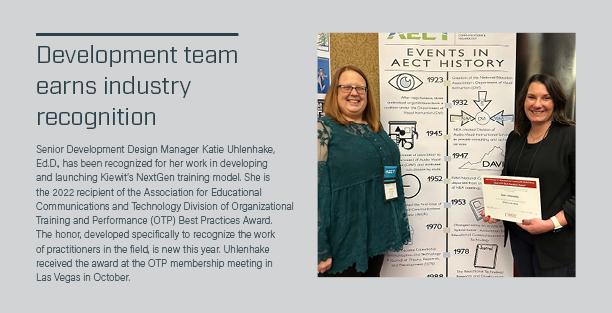
Making a step change
In a time when other companies have been pressing the pause button on programs, Kiewit has jumped in with both feet.
“For me, the exciting part is attempting things we never would have imagined pre-pandemic,” Magistro said. “We’ve been myth-busting our own theories and getting to the right answer for training Kiewit employees.”
Feedback from learners, both on evaluations and anecdotally, has been overwhelmingly positive. Engagement levels are above 85% for on-site training, the applicability of content is 90%, and nearly 100% of respondents answered affirmatively to a question about facilitators’ role as mentors.
The training has also had a ripple effect that goes beyond learners. Since launching the first school virtually in October 2021 and in person in January 2022, the team has already received calls from learners and facilitators about similar things that they want to do with their teams.
Dan Lumma, president, Kiewit Engineering Group, said this is “a great example of how we’ve taken something and said, ‘you know what, that’s not good enough,’ We haven’t just made an incremental change, but really made a step change in how we’re delivering our training. I think it’s a great comment about the organization that we would launch something so transformative where we’re already an industry leader in that area.”
